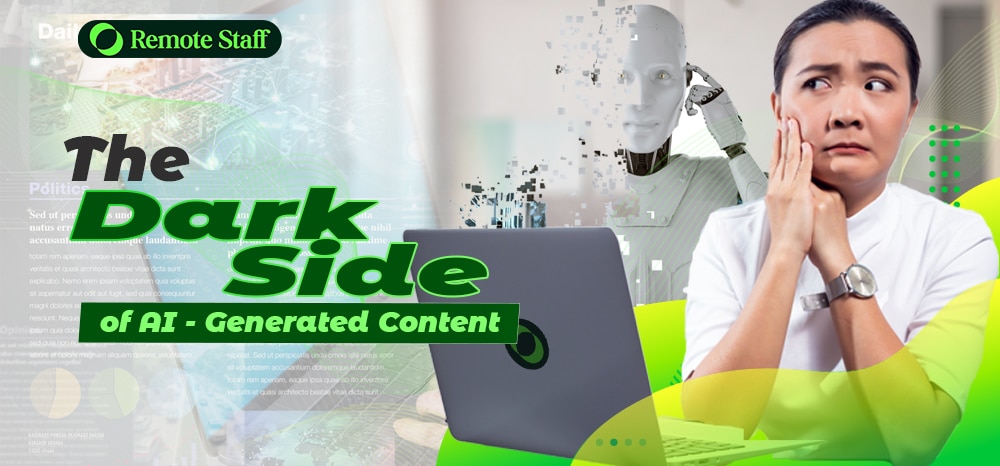Artificial intelligence (AI) has been a hot topic in the past few years.
After all, many roles today—like virtual assistant jobs, for instance—rely on AI-generated content to carry out certain functions.
Still, what are the consequences of relying on AI to create content?
Benefits of AI

AI isn’t all bad.
Many company owners like using AI tools as it’s more efficient.
Think about it.
What takes a human writer hours to create, ChatGPT can produce in minutes—even seconds.
For non-creative roles like online bookkeeping jobs, AI helps speed up and automate the processes involved.
It also processes huge amounts of data faster in data entry jobs.
This results in increased productivity for many companies, leading to faster visibility, quicker content updates, and (hopefully) more leads.
Lastly, many business owners are inclined to use AI because it’s more cost-effective. They can simply subscribe to whatever tools they need rather than hiring a full-time employee.
Still, AI is not some miracle that instantly boosts a company’s sales or improves its services.
If you’re a creative working online writing jobs or graphic design roles, for example, there are risks of using AI-generated content.
Repercussions of AI-Generated Content

Google rewards high-quality and original content, which is determined by the E-E-A-T (expertise, experience, authoritativeness, and trustworthiness) criteria.
All that matters to them is (again) the quality of content, regardless of how it was made.
This means that the tech giant is not against using automation—including AI—especially in fields like sports and the weather.
However, Google does advise against using these tools as a way to manipulate search engine rankings because they violate their spam policies.
So, it should be okay to create AI-generated content, yes?
Sure, but you still need to watch out for other possible adverse consequences:
AI is known to produce factually incorrect content.
As a remote worker, you wouldn’t want to risk your and your client’s reputation by publishing erroneous content.
Misinformation can endanger your readers—and negatively impact your search ranking.
AI-generated content can be sterile.
Reading copies produced by AI tools tends to sound cold and repetitive.
Though this might change in the future, AI cannot currently evoke emotions in the way that a human can.
AI usage comes with ethical implications.
The use of AI is a cause for debate at the moment.
Some professionals are all for it, while others, especially creatives, are vehemently against it.
With good reasons too. Currently, AI threatens to render many computer-facing and creative roles obsolete.
Further, AI’s output is prone to plagiarism because it only parrots and mimics original content that’s available on the Internet.
Use Your Best Judgment

In the end, AI should work for humans and not the other way around.
If you’re a remote worker, don’t be so quick to throw in the towel.
AI is a tool, not your replacement.
Take this as a sign to start learning how to use these tools to keep yourself competitive and on top of your game.
If you’re ready to work online, check out Remote Staff’s listings. It’s always updated and has open roles in several industries.
Remote Staff has also been in business for 16 years (and counting)! The company has always been at the forefront of innovation and continues to find ways to improve.
Register with us today!

